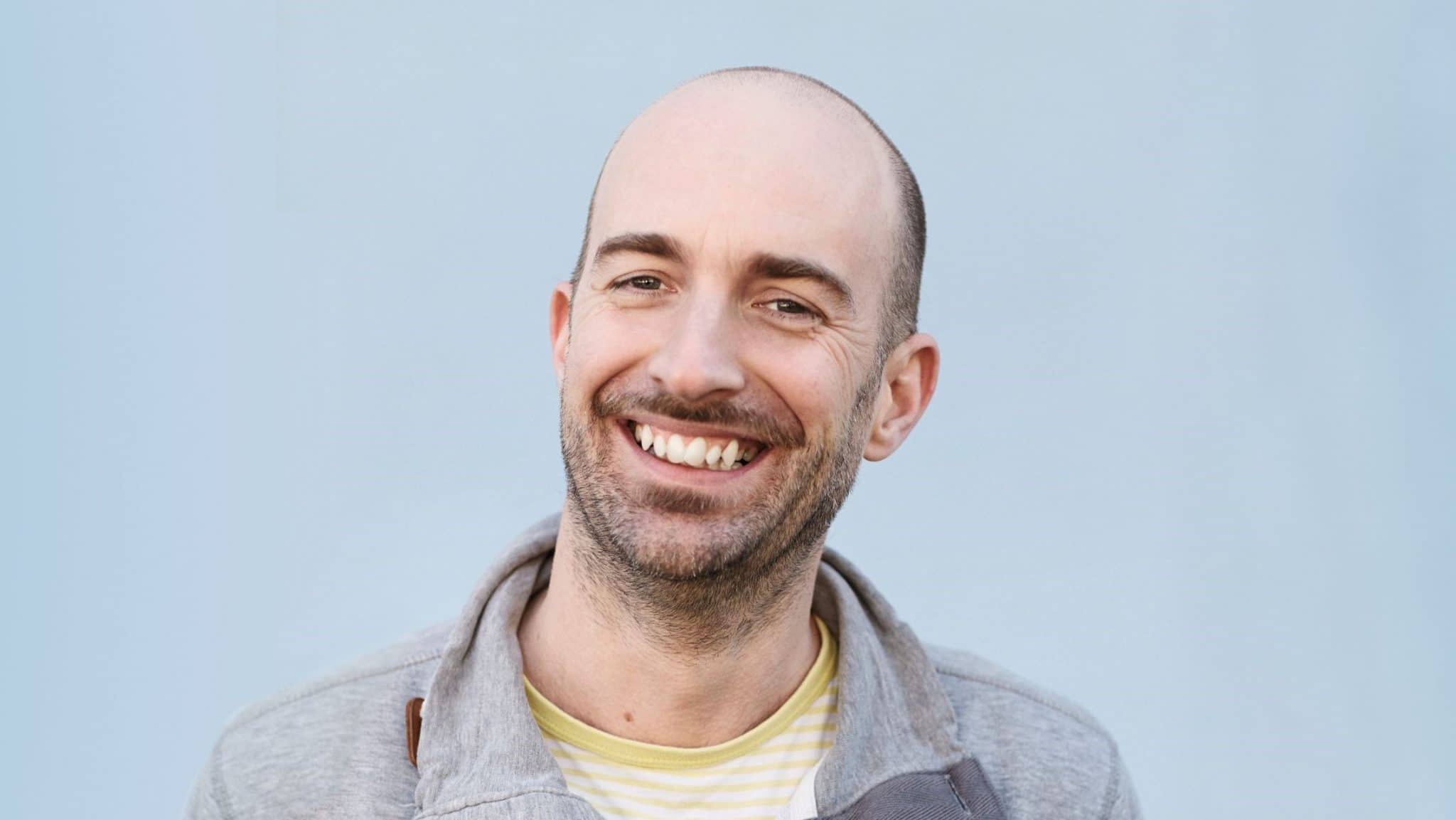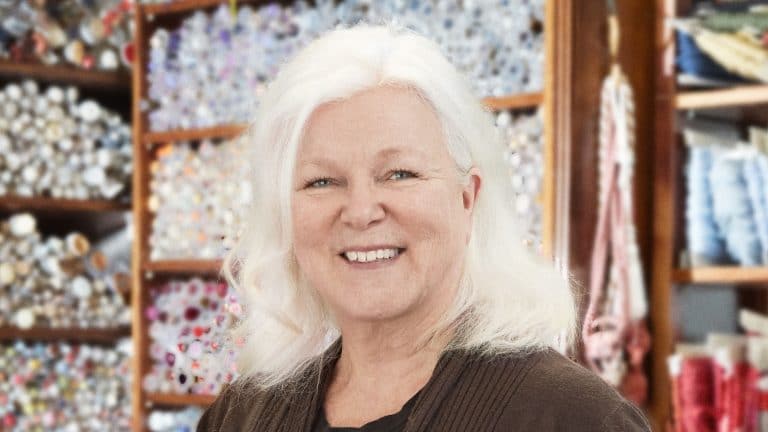Sales is a fantastic life skill
I was born in Sudbury in Suffolk. It’s a beautiful English market town about 70 miles north-east of London. I stayed there until I was 18, then headed off to study History at the University of Greenwich. After graduating, I spent a year in Vancouver, Canada, then traveled around the States for a bit.
When I eventually returned to London I was rich in new experiences, but poor in cash. A friend of mine worked for a newspaper, The Independent, in media sales. He suggested I give it a go. It turned out I was something of a natural and within 4 years I was managing the sales operation of two million-pound a year IT magazines for a publisher in Soho.
Although I never planned a career in media sales, I’m happy it happened. Sales is a fantastic life skill. Everyone uses sales techniques, often without realising it. If you want somebody to do something for you, you’ll sell the idea. It also helps you develop other really useful skills. I learned to listen more, to ask open questions and to channel my natural curiosity towards understanding business challenges. I also love the fact that I was helping to solve people’s problems.
People buy from people they like
To be a good salesperson, I think it’s a big help to be a people person. My mum was the sales manager for a local newspaper when I was a kid. She’s an incredibly warm and sunny character, and it was clear that people enjoyed buying from her. The simple truth is, if you’re being pitched two similar products, you’re most likely to buy from the salesperson you like best.
Of course, there are cultural differences in sales. In my experience, Finns are more analytical and less inclined to show massive enthusiasm towards any product. However, it’s important to “mirror people”. If I’m pitching to someone who’s more cerebral, I’ll pitch in a more cerebral way. In short, engage with people the way they engage with you.
Chasing experiences is more fulfilling than chasing money
I met my Finnish wife in a club in South London. She tapped me on the shoulder while I was dancing and asked me to buy her a beer. Needless to say, when a blond beauty asks you that question, you say yes. We lived together in London for five years, then went on a trip around the world traveling to South-East Asia, Australia, and South America. This really transformed my world view. I became far less materialistic and realised chasing experiences and adventures was more fulfilling than chasing money.
It was at the end of this adventure that we decided to settle in Finland. By this time I’d got a Postgrad Diploma in Creative Writing from the London School of Journalism and had been writing a lot of stories while traveling. Sadly, short stories don’t pay very well. It was then I realised my Englishness could be used as to my advantage as more and more Finnish companies needed English copy. So, I started to do freelance copywriting for Nokia’s ad agency. After three years in Helsinki, my wife went to work for an NGO so we headed to the Peruvian Andes for a year. There I taught English and Art to local children and really got into my fiction writing, getting more stories published in magazines and anthologies.
When we came back, I joined a B2B agency called Konsepti. It was founded by three great copywriters, so in my three and a half years there I learned lots from the partners and won my first copywriting prize, a Gold Effie. Happily, I got the opportunity to work with lots of different companies and develop my writing and pitching skills. During this time, I also understood what an asset it was to be a copywriter with a background in sales. As my copywriting skills got better, I also started winning prizes for my short stories and had a couple broadcast on BBC radio.
Nokia was a vast basket with too many eggs
After leaving Konsepti, I once again started to do lots of work for Nokia. Eventually, I was doing so much I co-founded Ink Tank Media with my wife, who was also a copywriter and is now CEO. We went from running a single blog to managing, editing or writing for six. We grew our business by combining our talent for storytelling with a unique flair for social media. In fact, in three months, we took traffic from 90K a month unique visits to 250K a month. Back then I thought, “Nokia – it’s the biggest phone manufacturer in the world, why would I need more clients?” I know people say don’t put all your eggs in one basket, but in this case, it was such a vast basket with so many eggs.
Always focus on expanding your customer base
We all know what happened next. When Microsoft bought Nokia’s mobile division, we carried on working with them for a couple of years, but eventually, they killed the phones, almost killing my business at the same time. In hindsight, I should have pitched more clients, but I don’t really regret not expanding the business then. My work-life balance was good. By this time I had two small children, a son, and daughter. They were too young for school so we’d normally work from Spain during the winter. Nonetheless, it would have made the transition easier if we’d had more clients. Happily, after a year or so of pain, we bounced back, largely because lots of former Nokia contacts got cool jobs in companies such as Supercell, Rovio, Fiskars, and L’Oréal, and they asked for our help.
I love being my own boss, but it comes with big responsibilities
Even though it comes with big responsibilities, especially when you have more and more employees, I love working for myself. Of course, there are times when the stress is pretty intense and you have to do long hours and you never really get the chance to wind down. However, the buzz of building something from nothing and growing your business beats all that. During my twenty-year career, I’ve only been an employee for only about six years. I can’t see myself going back to that.
Ink Tank Media is a Finnish/English language digital and content marketing agency, which means we have lots of creative people. We have seven different nationalities, and we try to provide a flexible working environment to take into account people’s different ways of working. For example, we have remote Friday, when people can work from wherever they want. This sort of arrangement, of course, requires an element of trust and ultimately business needs are paramount, but so far it seems to work well.
When it comes to recruiting, I look for people who have both expertise and good people skills. During the interview, besides their portfolio and experience, I want to know if they have the ability to listen, communicate, and relate to others on a personal level. This is important because although we’re a growing company, there’s still only a dozen of us. So, typically everyone will interact with our clients at some level.
5 skills every successful entrepreneur needs
In my opinion, these are important for entrepreneurs to grow a business.
The ability to delegate
It’s often the case that when running your business, especially when starting out, you have to juggle a lot of balls. You need to prioritise, focus solely on what matters, and let others help you out when possible.
The ability to sell
For some people, sales is considered a bit of a dirty word. But sales done well is a thing of beauty. I would suggest people take formal sales training and learn how to open a sales pitch, how to listen actively, how to ask good questions and how to close a deal. Your sales expertise can make or break your business.
A willingness to try new things
There are loads of things you could be absolutely brilliant at, but you’ll never know unless you give them a try. Of course, there are many things in life that can hold you back, but if you have an opportunity then go for it. I’m a big advocate of learning by doing.
The ability to deal with failure and rejection
I know it’s a cliché, but don’t be afraid of failure. When you fail, you learn. I wrote short stories for a couple of years without a single acceptance. It was tough to deal with constant rejection and failure for such a long period of time, but it made the eventual success all the sweeter. To deal with failure and rejection, ask yourself “Why does it keep happening? What can I do differently?” Then act upon the results.
The ability to avoid procrastination
It’s easy to find reasons not to start a project, learn a new skill or pitch a new client. There always seems to be something else to do. But the quicker you begin, the quicker you’ll reap the rewards. I recently opened two online stores for Very Finnish Problems and Very Brexit Problems. My procrastination very literally cost our business money. So, if you have an idea, just go for it!
Let your work speak for itself and share your success
Nothing beats creating cool stories. Seeing our content reach millions of people is a buzz I never tire of. We focus on doing our best in every project and let the final outcome speak for itself. Consequently, we get lots of new clients via recommendation. That said, it is important to showcase your success. My old sales director once told me “It’s no good doing great work if nobody knows about it. You always need to raise your profile.” It’s a little bit like writing a great story that nobody reads.
Nonetheless, delivering great work, building trust and maintaining a good relationship with customers are always our top priorities. We love to create work our clients can be proud of. It not only ensures they hit their business goals but shows they have a flair for picking the right partners. Our clients’ success is infinitely more important to us than advertising awards.
Personally, I really enjoy getting new clients because it means I get to learn about a totally new business. I also get to meet lots of new people and ask lots of questions. To that extent, sales and journalism are quite similar. You’re interviewing people to learn more about their story. That’s one of the great joys of my profession.
Very Finnish Problems gained 50 000 fans in 3 months
I love growth hacking social media communities and I’ve done it on most social media channels. On Reddit, I’ve launched many subreddits. Old School Cool, my largest now, has 14.2 million subscribers. On Facebook, collectively, my pages and groups total close to a million followers. Very Finnish Problems actually started life as a Twitter feed, where I have nearly a dozen viral feeds. Initially, I was just playing around.
It only really took off when I bet a friend, who worked in marketing at Microsoft, that I could create a 10K FB page in a month without any budget. Within a month Very Finnish Problems had 15 thousand followers. Within three months it had 50K. After six months, I thought it would make a good book. By then I’d already had my first fiction book, Spellbound: stories of women’s magic over men, published in the UK. But I’d never had a non-fiction book published. So, I emailed Gummerus – one of Finland’s oldest publishers. Around ten minutes later I got a response, “Yes, we’re really interested, please come to the office.”
I was very happily surprised by their enthusiasm. In the world of book publishing, it’s incredibly rare to get such a quick response. Typically it can take months. In the end, Gummerus bought the manuscript of 101 Very Finnish Problems: The Foreigner’s Guide to Surviving in Finland after they read the first five problems. Needless to say, I was very happy about that.
Immigrants are by definition bold and adventurous
In Finland, like in many countries, I think the attitude towards foreigners has deteriorated. This is down to both media and, of course, certain political parties. What’s more, Finland has been both geographically and culturally isolated. That means Finns haven’t had much experience getting to know people from other cultures. It’s a shame because, with its aging population and a big skills deficit, it needs immigrants more than ever. There are government initiatives such as Talent Boost to retain international talent, but foreigners need to feel welcome too. As far as I’m concerned, anyone who comes to another country is always going to be worth considering as an employee. Immigrants are by definition bold and adventurous. It’s not easy to adapt to a new culture, leaving your friends and family behind.
There are loads to love about Finland
There’s no doubt culture shock can be extreme, just look at the weather. That said, there are lots to love about Finland. Personally, I’m a huge fan of the social security system, the work life balance, nature, and the fact that it’s a largely classless society. Consequently, it’s sometimes frustrating to hear Finns moaning about things when they have one of the best functioning societies on earth. Maybe it’s ironic that I’m so enthusiastic when I’ve created such a successful social brand based on Very Finnish Problems! But, I really am something of a Finland fanboy…except maybe in the depths of November. Then I’d rather stay in bed and hibernate!







